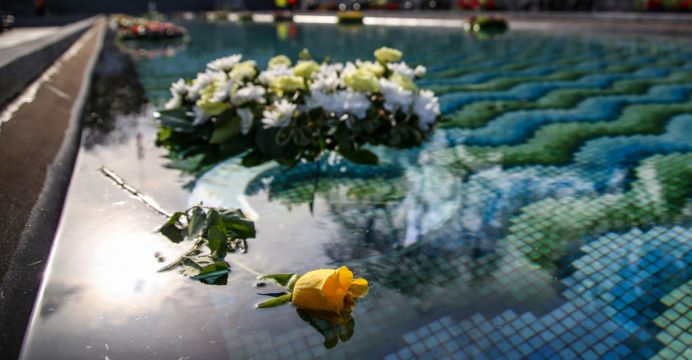Some 70 per cent of people bereaved during the pandemic believe their loved one did not receive the death they would have wanted, according to new research.
The Time to Reflect survey was commissioned by the Irish Hospice Foundation to explore the impact of Covid-19 on perceptions of death during the pandemic.
Most participants reported the pandemic changed their views about dying, death and bereavement, with contributors reporting a greater awareness of grief and loss due to Covid-19.
More than half of the 2,259 respondents to the self-selected survey said they had experienced the death of someone close to them during the pandemic.
Almost three-quarters reported the pandemic prevented their loved one from having the death they would have wished for.
About 86 per cent of participants agreed their experience of a loved one’s death was negatively affected by Covid-19.
Less than 20 per cent of bereaved participants were able to spend time with their loved one before they died and more than half of the participants were not present when their loved one died.
These difficult experiences were impacted by the Covid-19 public health measures limiting gatherings and attendance at hospitals, as well as strain placed on health and social care services.
More than 60 per cent of those bereaved said their ability to grieve was negatively affected.
Only 54 per cent of respondents reported that their loved one received the level of care they needed at end of life.
Some 70 per cent of people reported that family and friends were excluded from funerals because of public health measures.
Meanwhile, 40 per cent said they did not receive the support they needed following the death of a loved one.
One contributor recalled the death of their brother-in-law from a late diagnosis of cancer during the pandemic.
The man’s wife and children could not sit with him or comfort him.
The contributor said: “Only in his last minutes when he was already in a coma were they allowed at his bedside.
“They never really got to say goodbye, even worse they never got to comfort him, tell him they loved him, while he could still hear them. None of us got to say goodbye. There has to be a better way.”
Healthcare workers were particularly impacted by the distress of witnessing so many deaths and the challenging circumstances they faced.
One nurse said she was unable to give all of her patients the time they deserved.
She said: “You could be with one sick patient for up to an hour and go to the next, and they could’ve been lying there dead for who knows how long.
“It’s impossible not to blame yourself. You felt like you failed your patient and their families.”
One participant told the survey: “As a healthcare worker, the impact of patients not being able to physically see their loved ones is one of the hardest parts of my nursing career.
“To see a family looking in a window viewing their dying father was so traumatic and heartbreaking. It is a moment in time I will never forget.”
Another said: “Working front line, it often was harrowing. Watching family members outside in the rain looking in as their loved one dies inside with one member of the family only present.
“Relatives were often difficult to cross with us, [which worsened] the absolute misery we were feeling.”
Limits on numbers attending funerals and mourning rituals were also cited as having an impact on the grief experience of bereaved individuals.
A contributor recalled the loneliness they felt while burying a loved one: “Only the immediate family were allowed into the graveyard. The gate was closed. We were not permitted to carry the coffin.
“The priest quickly said a few prayers. It was over in a matter of minutes. Almost no-one spoke to us as we walked home in shock.”
The Irish Hospice Foundation recommends placing a high importance on “person-centred compassionate end-of-life care” with family involvement in the event of future public health crises or emergencies.
It also wants continuous training in quality end-of-life and bereavement care for healthcare staff as well as greater investment and resourcing in bereavement support services.







